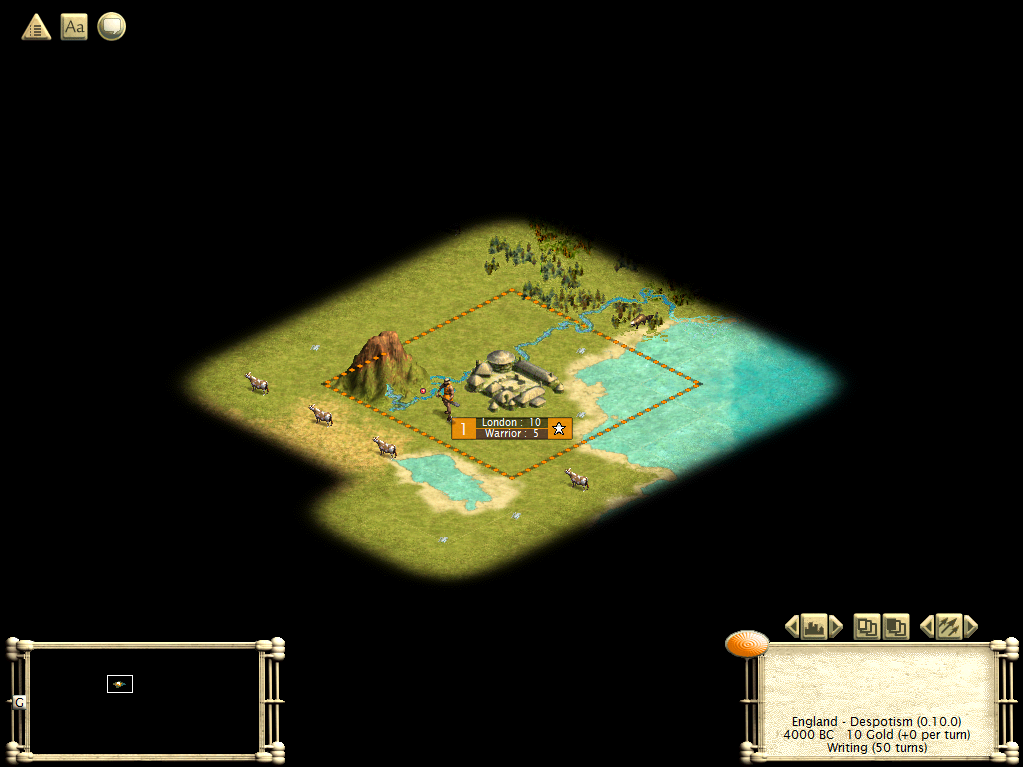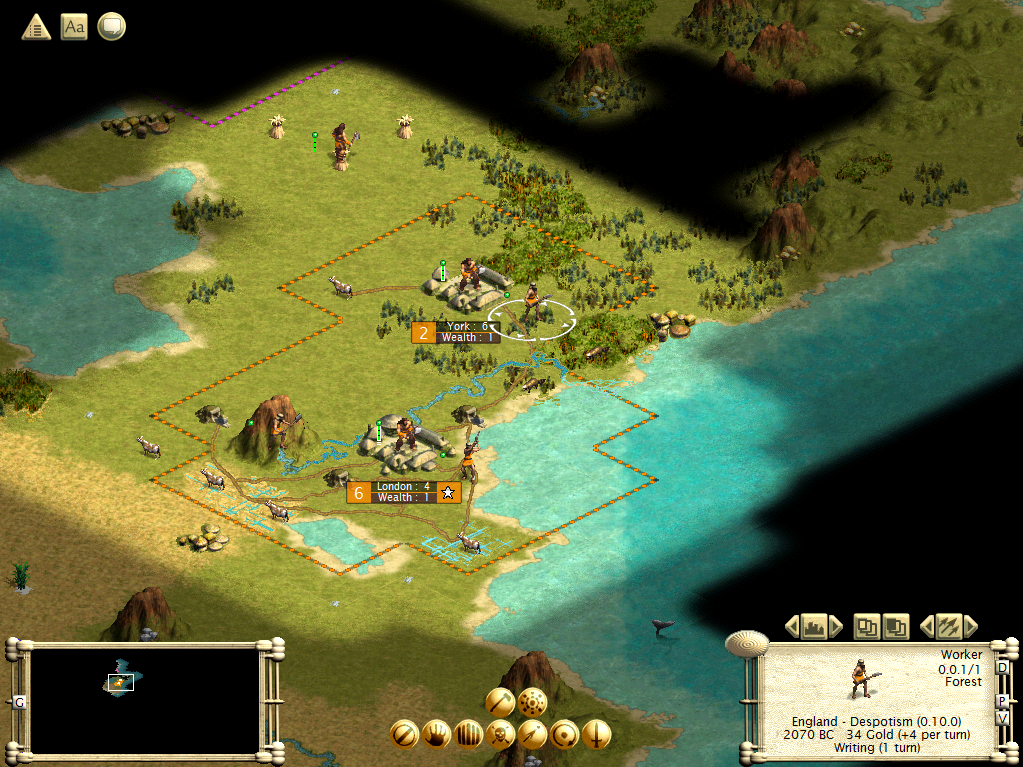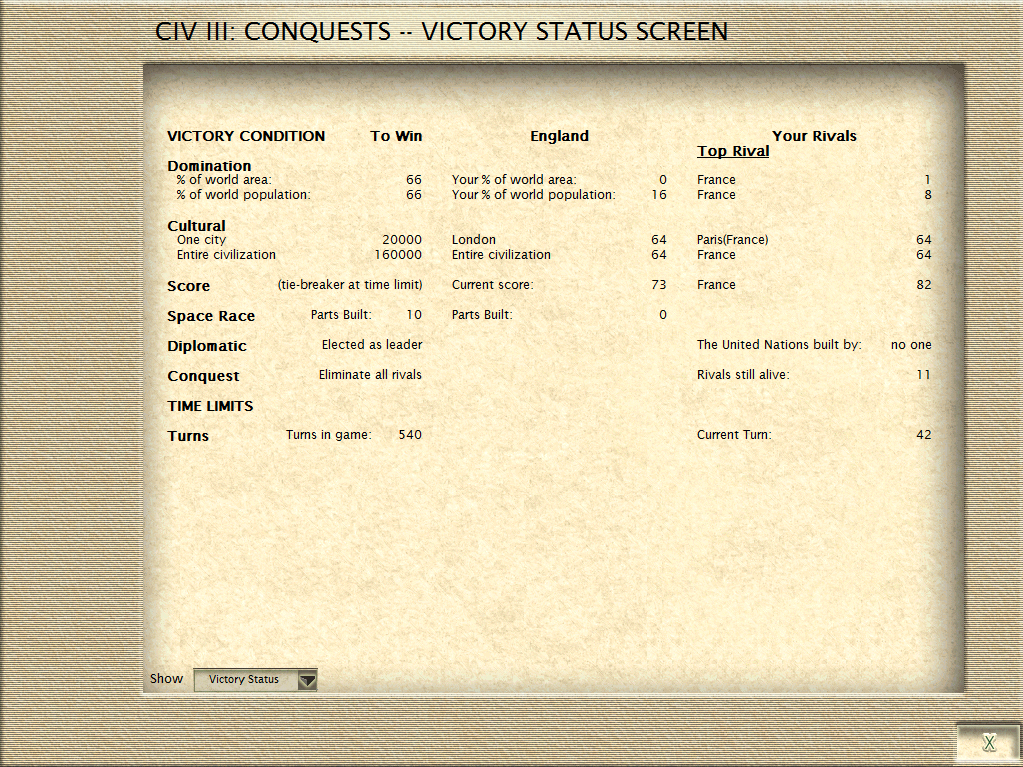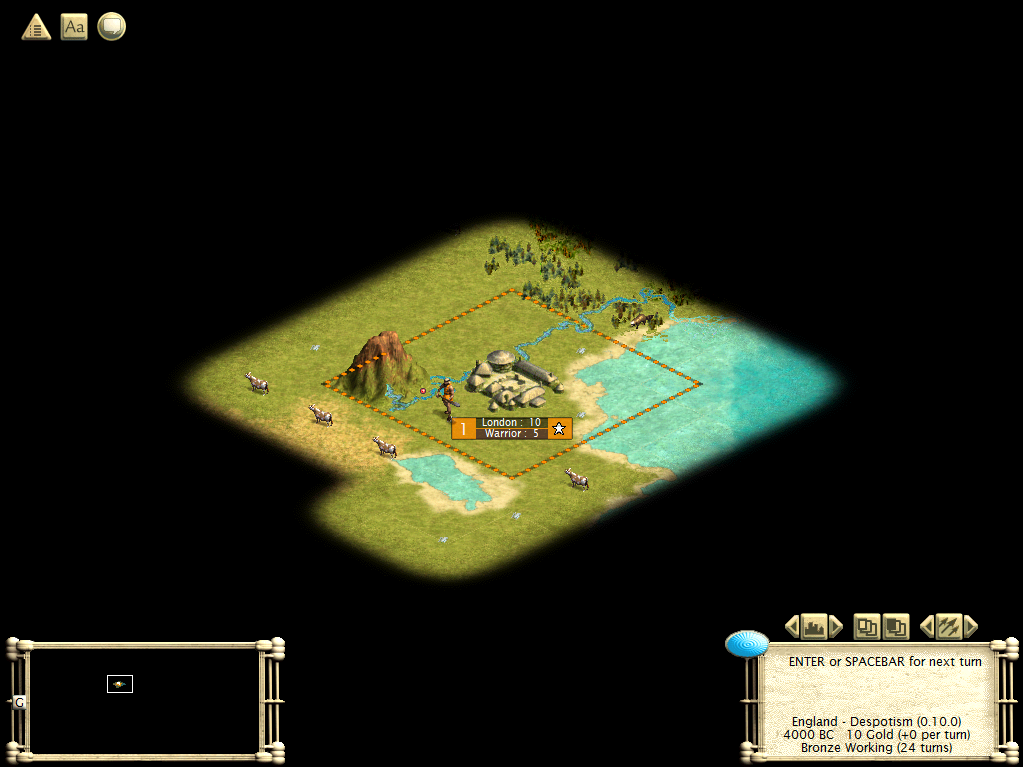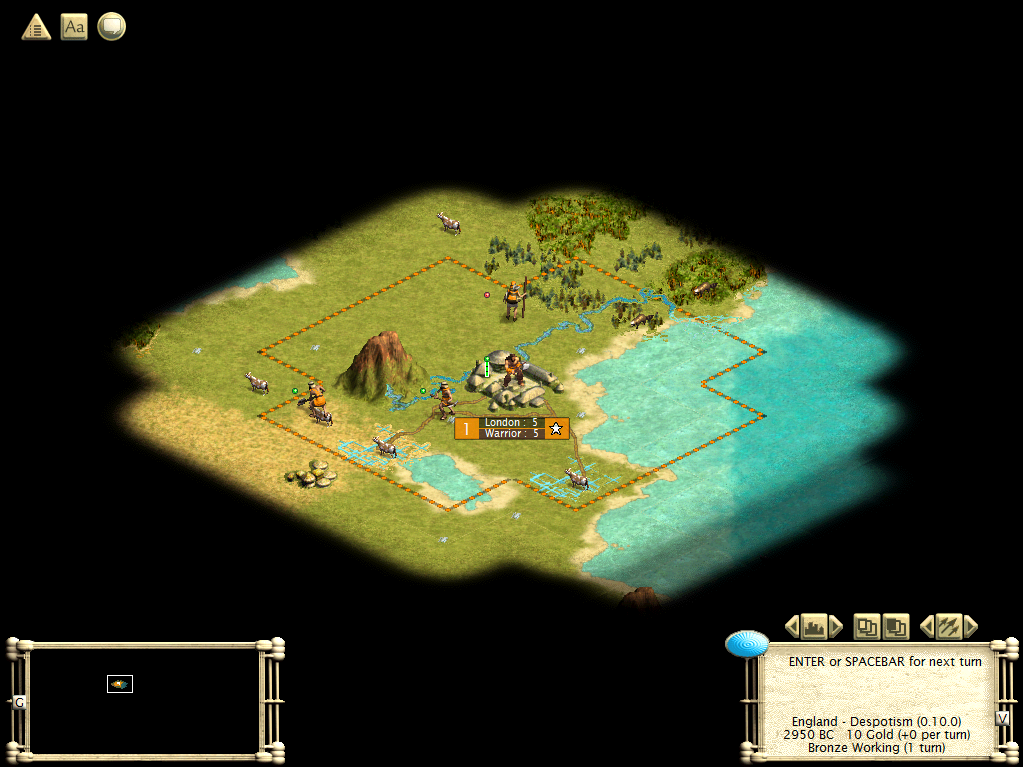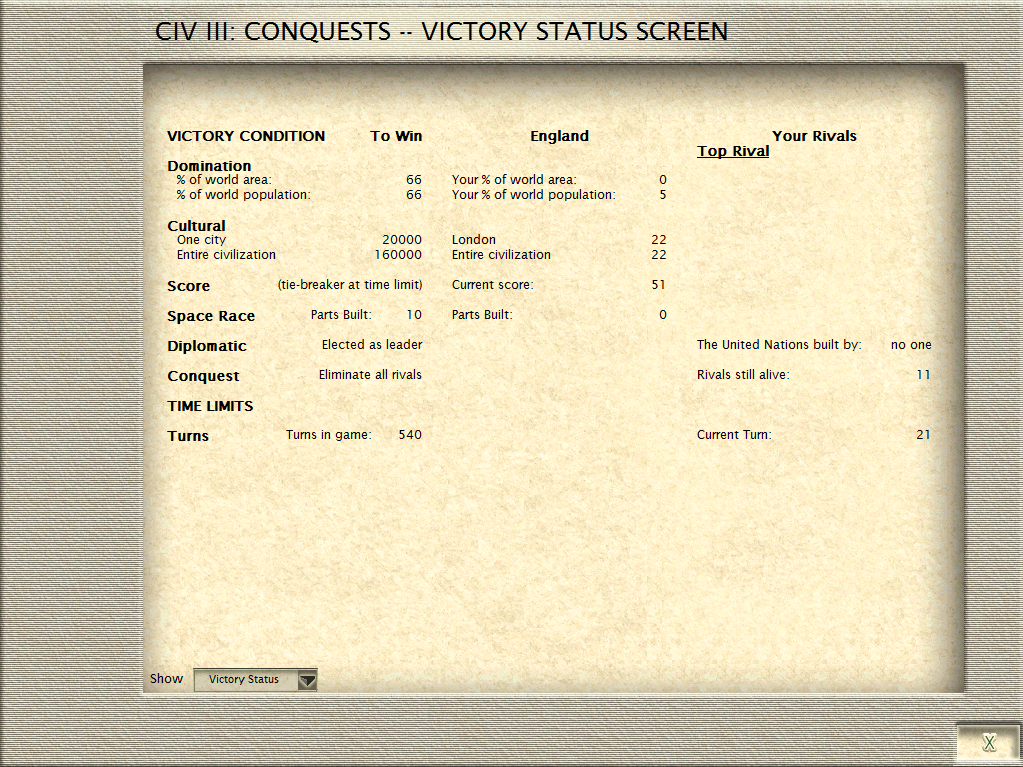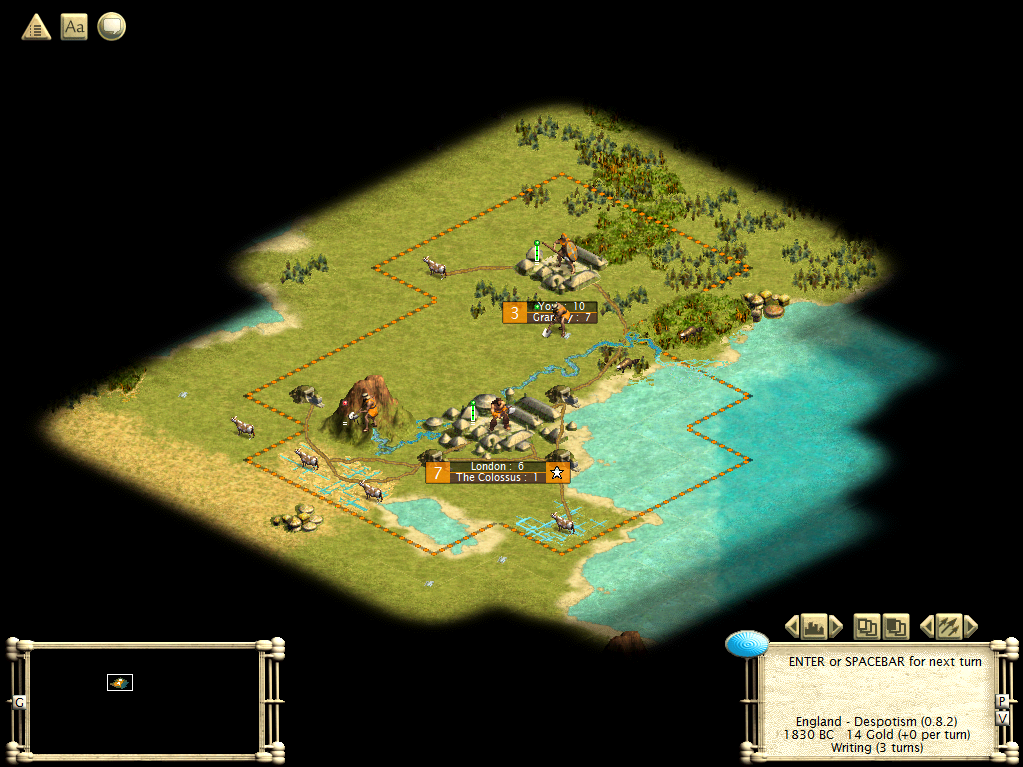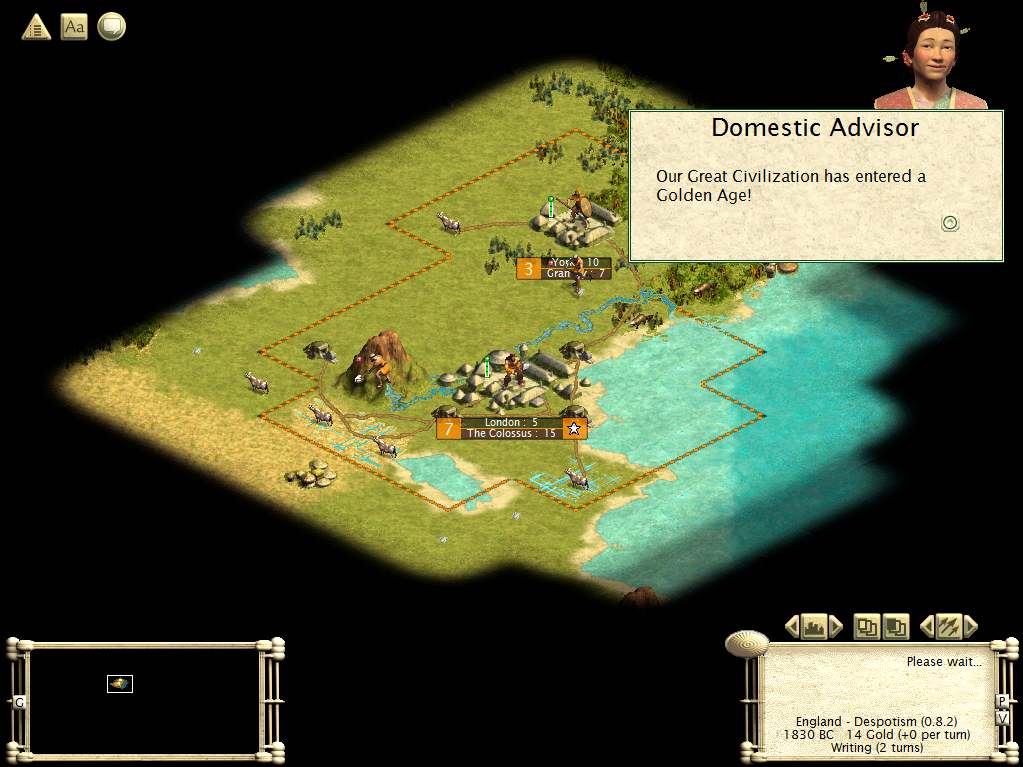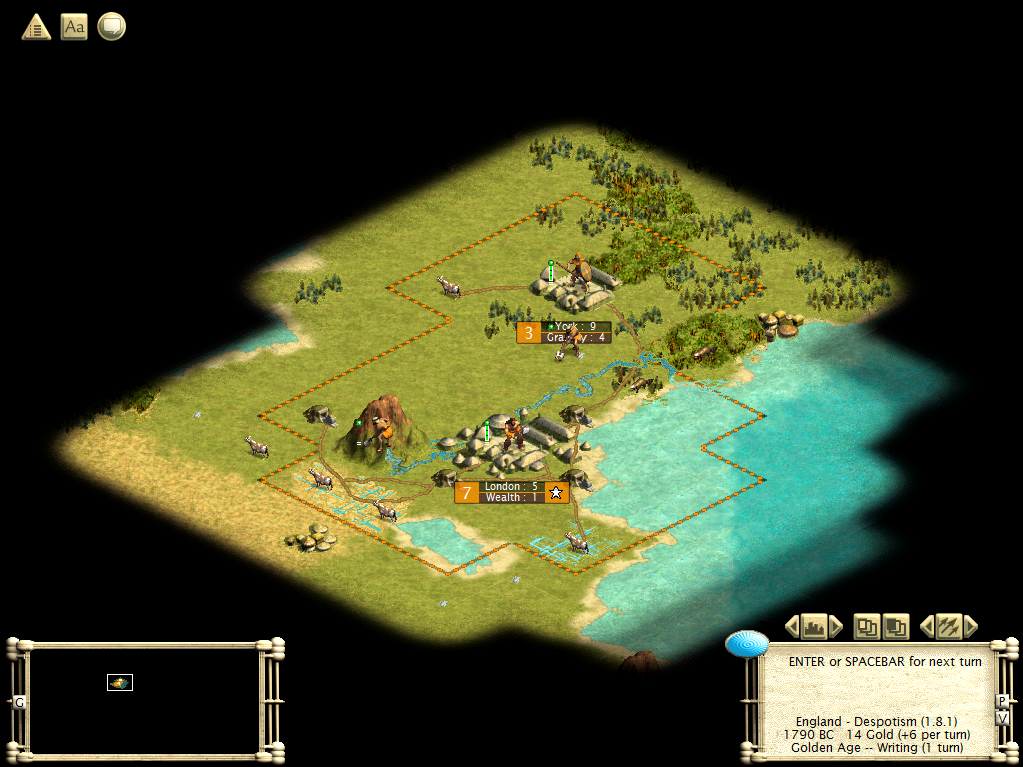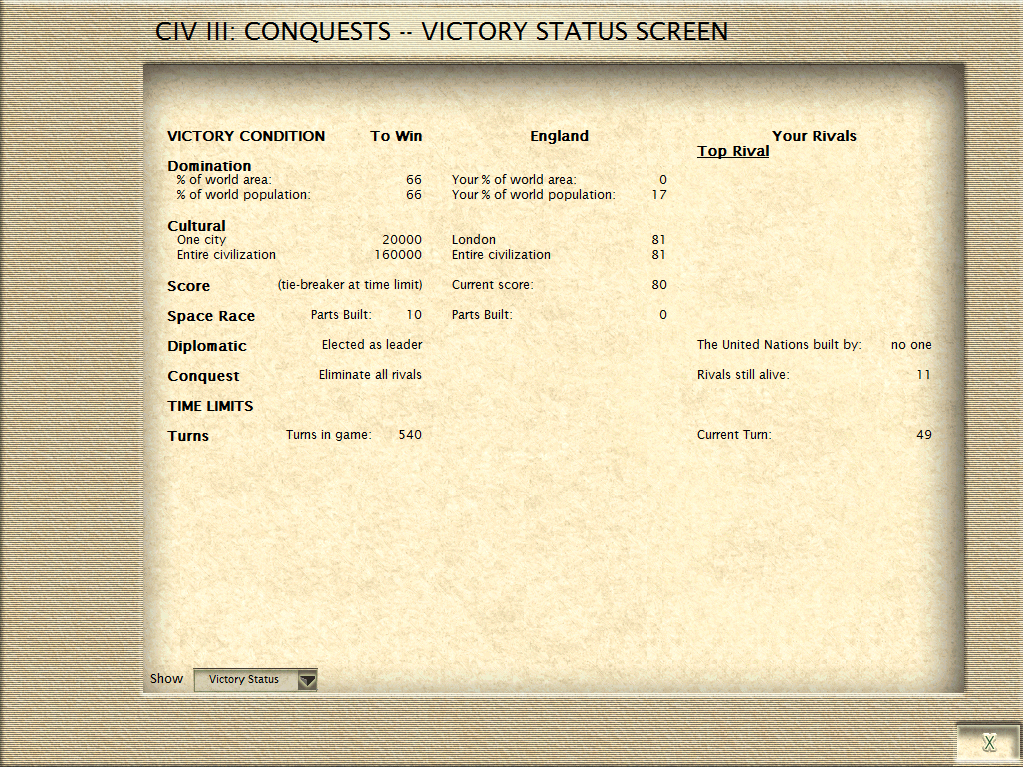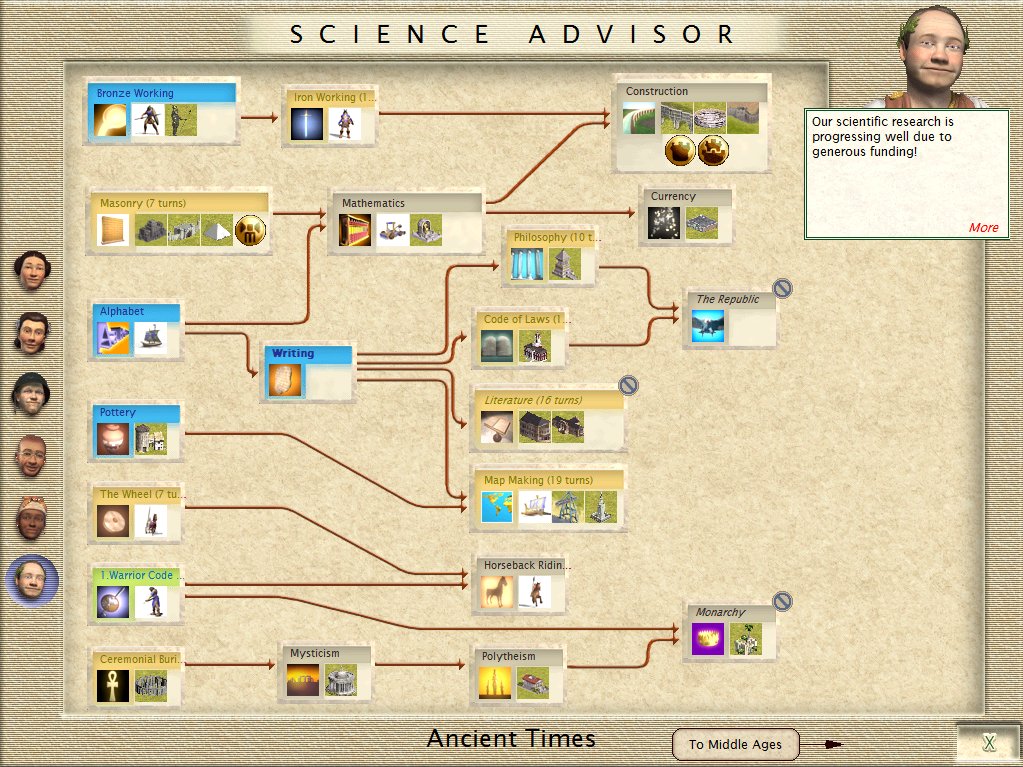Base cost of BronzeWorking is 3. Base-cost of Writing is 8. Map modifier for Huge is 400 (from the thread Justanick linked to). If I understood (Justanick's rewrite of) the formula right, then that means that while Writing is still unknown (to anyone that you know), for a Regent-level Huge map, it costs
3200 beakers.
Per your example, at 4 BPT, Writing would take
800T to research, so time-to-tech is capped off at 50T: but you'll only amass 200 beakers in 50T, so the deficit to
actual cost = 3000 beakers. Even if (again per your example) you can increase your science-investment to a (whopping) 13 BPT over the next 20T -- let's split the difference and call it 9BPT over 20T, and that's being generous -- you've still only amassed ~180 beakers in total, so the deficit to
actual cost is still ~3020 beakers, divided by 13 BPT ≈ 233T to tech! So the time-to-tech will
still be capped at 50T, minus the 20T you already put in -->
still 30T to tech.
By my count, you would have to
octuple your BPT (i.e. from 13 to 105 BPT)
just to get the remaining time-to-tech down by
1T below that 30T-remaining (29 T * 105 BPT = 3045 beakers). And that's 105 BPT
average over those 29T, i.e. your BPT would have to have increased to
much more than that by the 29th turn. Which would mean you're gonna need towns -- lots of towns... So how many Settlers do you think you'll be able to build in those 29T (while still under Despotism to boot)...?
Of course, meeting some AICivs who've already researched Writing would help reduce the absolute beakers required. Only problem is, at Regent, the AICivs'll be operating under the same constraints as you -- and thanks to your preference for Huge (80%-water?) Arch-maps, none of them will be able to share notes with each other (or you) for a long time yet, either.
And they'll most likely all be busily researching Bronze/ Masonry/ Iron anyway...
OTOH, if you've spent time researching Bronze/ Masonry first, then by the time you start on Writing, your BPT is probably already (much) higher than 13 BPT. (I don't think you'd be able to do either of those in <50T: you'd need 1200 beakers for Bronze, 1600 for Masonry). Safe in the knowledge that unhappiness is not a major issue at Regent (and the expectation that you won't be sharing your island?), I would imagine that you've probably been building almost nothing but Settlers and Workers (plus maybe a boat or two?) and ReXing like mad. For Writing in 27T from scratch, assuming no-one knows it yet, you'd need 3200 / 27 = 119 BPT -- which
is pretty high, but at SCI%=100%, you could get that from working 60 tiles, each giving 2CPT (before corruption, but also not including any CPT-bonuses for Luxes, or Colossus), e.g. ~12 fully roaded Pop4 river- or coastal-towns.



